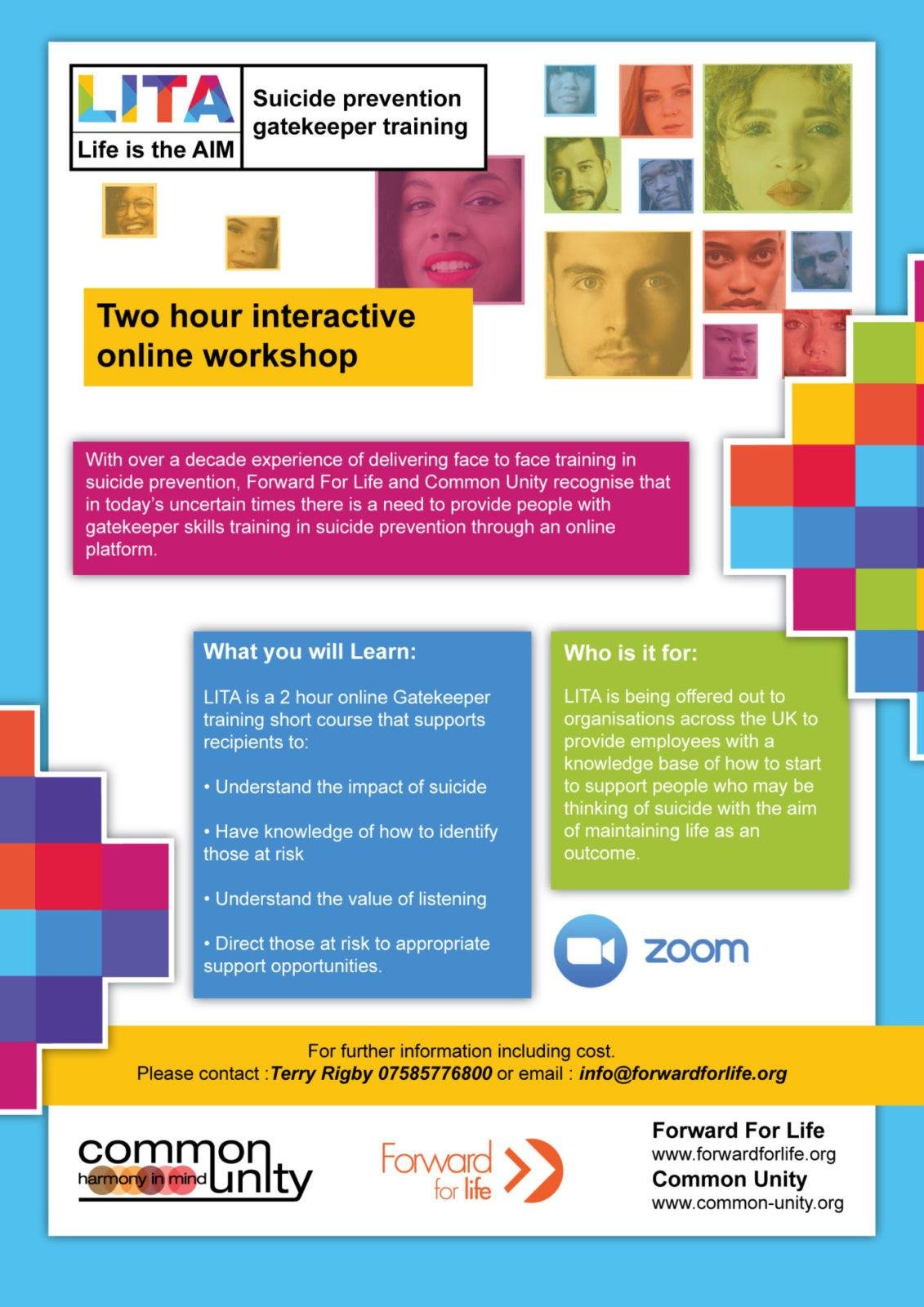


Life is the AIM – Suicide prevention gatekeeper training
The developers LITA was developed by Forward For Life and Common Unity. We recognise that in today’s uncertain times there is a clear need to provide people from all walks of life with gatekeeper skills training in suicide prevention. But we cannot rely only on...
SCHEMA: An Approach to Suicide Prevention
Suicide is a taboo word in most communities. It’s something we don’t discuss. This is maybe because we are scared that talking about it might put it in someone’s head or maybe because our communities see it as a sinful thing to do bringing shame on the family or the...
Suicide – More Harm Done Through Silence
There are a range of commonly held myths about suicide, but one of the most challenging myths is the idea that by openly asking a vulnerable person if they are thinking of suicide might actually encourage suicidal behaviour, or even put the thought into their head....
Tackling Suicide on the front line in Birmingham
The need to train front line professionals Over 6000 people die in the UK by suicide each year. So, it’s crucial that frontline professionals and communities are trained in suicide prevention skills. As part of the Connecting Community Networks Programme in...
